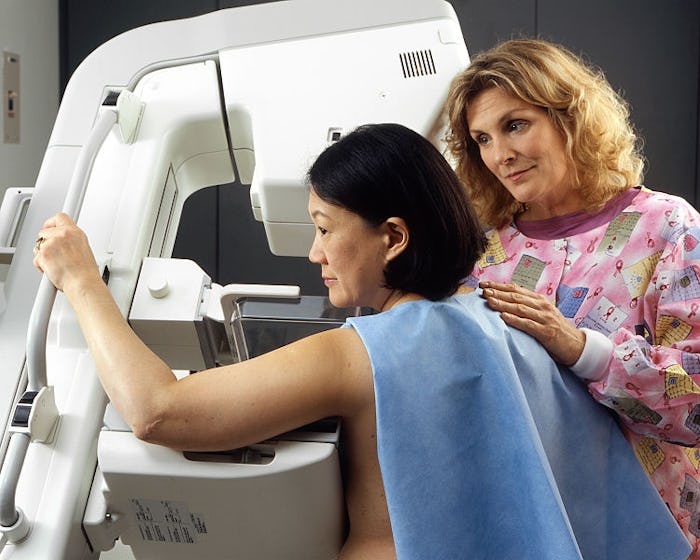Life
New Mammogram Guidelines Give Women More Say
Previously, the American College of Obstetricians and Gynecologists recommended that most women get annual mammograms once they hit 40 years old and are at an average risk of breast cancer. Now though — after reviewing evidence regarding the both the risks and benefits of the breast cancer screening — OB-GYNs say women in their 40s don’t need mammograms every year, unless they desire or their doctor specifically advises them to have one done.
According to new ACOG guidelines released on Friday, 40-year-old women should instead consult with their health care providers before initiating the procedure to discuss both the risks and benefits of mammograms.
As such, when a woman enters her 40s, doctors should begin to offer breast cancer screenings for those who are at an average risk after counseling about the procedure and an assessment, which can include genetic testing and family history.
At this point, the patient can either personally opt to have a mammogram done or physicians can recommend them for women between the ages of 40 and 49. If the patient decides against it, the ACOG says she should start getting the screening annually — or on an every-other-year basis — by age 50 until she’s 75. After, the group says women should discuss whether to continue by considering things like their current health and “longevity.”
The U.S. Preventive Services Task Force also says women should start regular mammograms at 50, and that "women in their 40s should make an individual decision about whether or not to screen," as NPR reported. Meanwhile, the American Cancer Society and the National Comprehensive Cancer Network say screening should begin earlier at age 45 and 40, respectively.
"ACOG’s updated recommendations arrive amid mounting evidence that the risks of mammograms may outweigh the benefits, especially for women under 50," according to Mother Jones.
Additionally, Christopher Zahn, vice president of practice activities at ACOG, told NPR said the advice changed because "a patient's preferences and values need to be an important part" of the whether to have a mammogram.
According to the Mayo Clinic, mammograms expose women to a very low-dose of radiation, aren't always accurate, can be difficult to interpret in younger women, may lead to additional testing, and can't detect all cancers.
The ACOG also noted that mammograms can sometimes lead to "overdiagnosis and overtreatment" as well as false-positive test results that can come with hefty financial costs.
While it's important to consider the risks, the National Cancer Institute says that mammograms have helped with early detection of breast cancer and can be especially useful for those over age 50. "The benefits of screening mammography need to be balanced against its harms," according to the National Institute of Health.
It's also important to keep in mind that these new recommendations are for "average-risk women" who aren't experiencing symptoms, which can include pain, nipple discharge, or a change in feel or appearance of the breast or nipples. There are a lot of factors that can contribute to an increased risk of breast cancer, such as getting older, family history, not being physically active, and taking birth control pills.
With any important decision regarding your health, consulting with an expert and balancing both pros and cons of any procedure is vital. And, if anything, these new guidelines give women more control and options when it comes to screenings and their overall well being.
